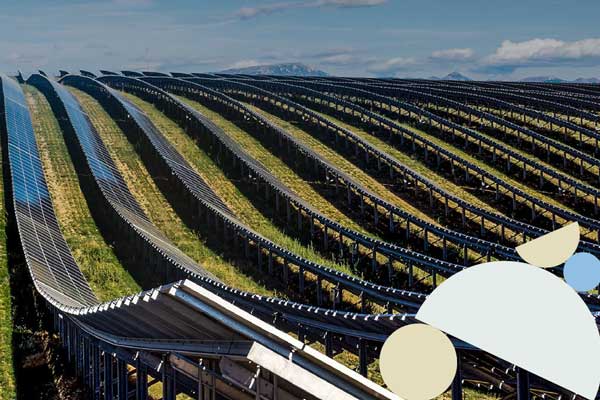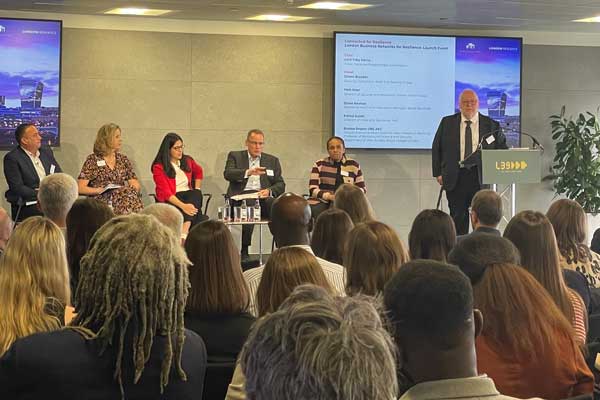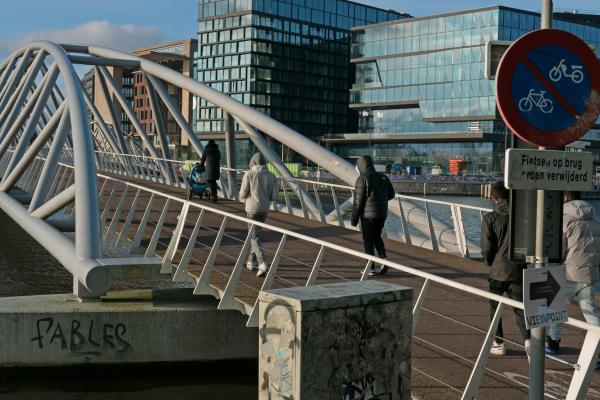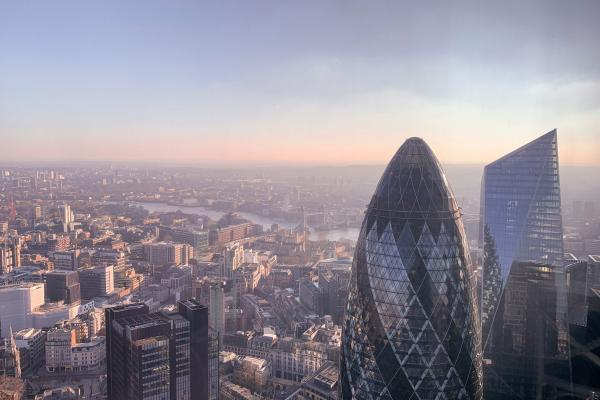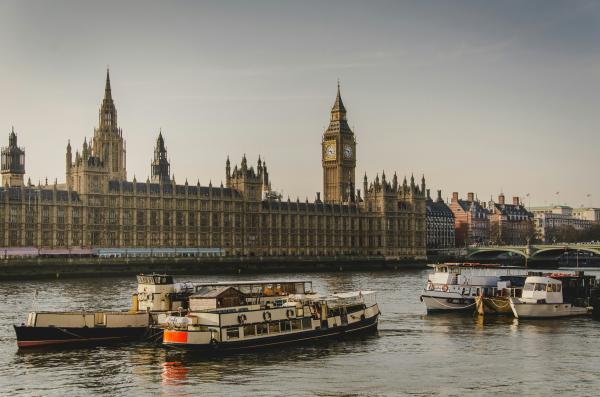Zurich calls for urgent action to protect Europe’s clean energy infrastructure
Zurich Insurance Group has published a new report, Safeguarding our Energy Future: Protecting Europe’s Energy Infrastructure Against Climate Risk, warning that Europe’s clean energy systems will be increasingly vulnerable to climate-related threats if no action is taken. As renewable energy becomes the backbone of the region’s low-carbon economy, making this infrastructure more resilient is now critical.
Upskilling for Resilience: Empowering London’s Business Networks | Insights from the event
Are you connected to your Borough Resilience Forum? With growing threats, from cyber attacks to climate emergencies, it’s crucial for organisations to be prepared.
Explore 10 steps your network can take today to strengthen local partnerships and enhance resilience.
Artificial Intelligence for Supply Chain Resilience: A Q&A with Deloitte insights
As supply chains continue to face complex global challenges, businesses are increasingly turning to artificial intelligence (AI) to stay resilient. Drawing on insights from Deloitte’s 2024/5 Global Third-Party Risk Management (TPRM) Survey, we explore how AI is transforming supply chain management and risk mitigation.
London Business Networks for Resilience: Key Insights from the Launch Event
London’s business networks came together to strengthen the city’s resilience. Chaired by Lord Toby Harris, the discussion focused on preparing for crises through collaboration, clear communication, and support for all businesses. Discover key recommendations and actions.
Deloitte blog series – Bridging the Gap Between Risk and Resilience
In this three-part blog series, Deloitte explores how organisations can bring risk management and resilience functions closer together to navigate today’s complex risk landscape.
Raising Your Game – Navigating Risks More Effectively
Strong risk governance is essential for achieving strategic objectives and building organisational resilience. Raising Your Game, a guidance framework from the Risk Coalition, sets out eight core principles that provide boards with a structured, principles-based approach to elevating risk governance.
Building Geopolitical Resilience: Thriving in a shifting world
In a volatile world where organisations have limited control over macro risks, how can they ensure survival and even thrive? This evolving outlook presents both challenges and opportunities.
Heathrow’s Power Failure: A Stark Wake-Up Call for Resilience in Critical National Infrastructure
In a volatile and complex world, the Heathrow fire offers more than just a case of disruption—it is a system-wide signal failure in resilience thinking.
Practical Steps for Building Resilience to Geopolitics – Event Summary
Last month Resilience First hosted a virtual panel discussion on building resilience in today’s evolving geopolitical environment. Read the event summary to explore key insights on how your organisation can identify opportunities and strengthen its resilience.
The Digital Ocean: Protecting Our Undersea Communications Infrastructure
Submarine cables form the backbone of global connectivity, handling nearly 95% of internet traffic and $10 trillion in daily financial transactions. As reliance on these cables increases, so does the risk. Between 100 and 200 cables are damaged every year due to accidents, natural disasters, or deliberate sabotage. Learn how these disruptions can affect businesses and how to make your communications infrastructure more resilient.
Warning Systems Save Lives
The recent wildfires in Los Angeles highlight the critical need for effective early warning systems to save lives.
As wildfires become more frequent and intense due to climate change, how can businesses and communities strengthen evacuation plans and improve communication channels to ensure timely alerts?
The Current State of Extreme Right-Wing Terrorism and what it means for UK Business
With rising attacks targeting minority groups and government-related sites, businesses face risks ranging from staff safety to financial disruption. Explore how the evolving threat of extreme right-wing terrorism impacts UK businesses.
The R&R approach
In an increasingly unpredictable world, the ability to adapt and overcome adversity – commonly known as resilience –has become a prized attribute for organisations. Investment in resilience is essential, especially as the interplay between the public and private sectors gains importance for creating a safe, resilient society. However, that investment has always involved trade-offs, such as cost, risk and time.
An Introduction to the New Model for Organisational Resilience
Resilience First and Cranfield University launch a New Model for Organisational Resilience. Learn more and check out the visual preview of the Model.
Important Updates: Purpose, Programming and New Membership Structure
Over the past few months, we have taken the time to review and refine our purpose, programming, events and membership structure to better serve our network. We are thrilled to share some important updates that will enhance your experience and engagement with us.
Resilience First and Cranfield partner to help organisations build resilience capabilities
Resilience First has formed a new strategic partnership with Cranfield School of Management, a world-leading research and teaching university with specialist experts delivering training and development in business resilience.
Learning the lessons of the Crowdstrike IT outage: Dr Alexander Taylor on the resilience takeaways.
Resilience First and ICSI Announce New Strategic Partnership
London Climate Action Week Recap
Resilience First Announces New Leadership and Continuing Commitment to Building a Resilient Future
Breakfast briefing with Rt Hon Tobias Ellwood MP: Navigating our Uncertain World and Building Resilience
Getting ready for Martyn’s Law
On 19 March, Resilience First held a dinner with Shaun Hipgrave, Director of Protect and Prepare, Homeland Security Group, UK Government Home Office, to discuss Martyn’s Law. The event was kindly hosted by Controlled Events.
The Uncharted Territory of AI Risks
Despite being a relatively young field, AI-generated developments and associated risks are likely to be accelerated at a rate beyond societal and government responses and regulations.
New Leadership Principles Set a Guiding Compass for Corporate Climate Resilience Pathways Initiative
Resilience First, the Center for Climate and Energy Solutions (C2ES) and Resilience Rising recently launched the Corporate Climate Resilience Pathways (CCRP) initiative, a multi-year effort focused on empowering companies to enhance their resilience, scale up investment in adaptation, and drive systemic transformation toward a sustainable future. Learn more about our groundbreaking set of Principles for Corporate Climate Resilient Leadership, developed with input from over 70 leading climate and corporate stakeholders.

